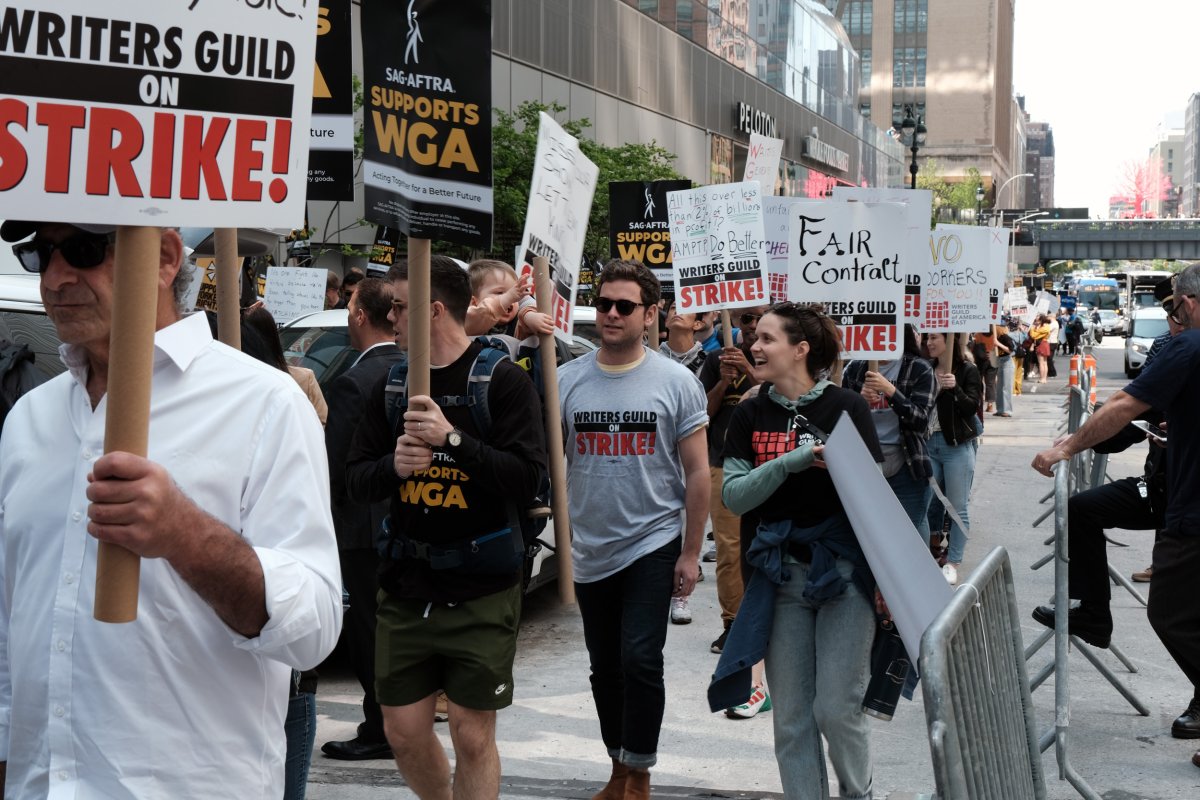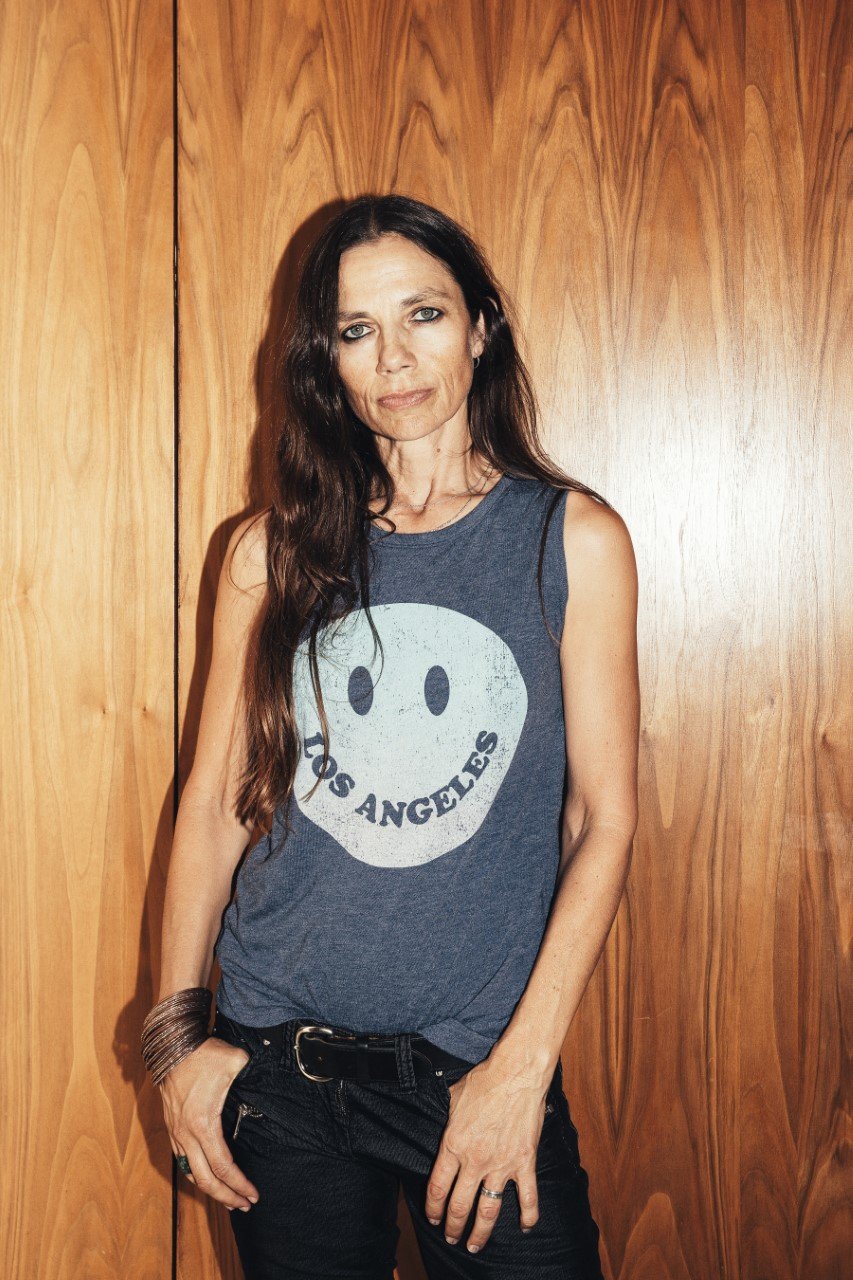What does it mean to be human?
You look human, you act human, you learn lessons, you have challenges, you feel emotions.
And yet, in 2023, we've shrunk decidedly away from being human.
The Writer's Guild of America (WGA) is currently on strike against the AMPTP, the representation of the Hollywood studios and streamers. A number of demands were made and were met with the expected pushback, but one pushback was alarming: the refusal to even have a conversation about the potential for AI to displace screenwriters in films and series.
As a WGA writer, a Directors Guild of America (DGA) director, a former Screen Actors' Guild (SAG) board member, former SAG negotiating committee member, and coder who holds a UCLA degree in computer science and digital media management, I knew this signaled that they were not only thinking about using AI to displace us, but that they had already begun.
AI stands for Artificial Intelligence, but I refer to it as "Automatic Imitation." In short, AI is an algorithm that is fed a wealth of information and given a task, and it then delivers the result based on the information it's been fed. There are more complexities, but that is the basic design and function of AI. And it is being used in the Arts for greed, trained on all our past work.

This is how I believe it's going to play out:
It starts with AI-written scrips and digitally-scanned actors, either image or voice actors. This scanning is already in practice; in fact, some talent agencies are actively recruiting their clients to be scanned. What this would mean for the actor is that they would get 75 cents on the dollar, and their digital image can be triple and quadruple booked. Of course, you're not getting the actor; you're getting a copy of them.
The next step will be films customized for a viewer based on their viewing history, which has been collected for many years. Actors will have the option to have their image "bought out" to be used in anything at all. Viewers will be able to "order up" films—for example, "I want a film about a panda and a unicorn who save the world in a rocket ship. And put Bill Murray in it."
From there I believe viewers will be given the ability to be digitally scanned themselves, and pay extra to have themselves inserted in these custom films. You'll also start to see licensing deals made with studios, so that viewers can order up older films like "Star Wars" and put their face on Luke Skywalker's body, and their ex-wife's face on Darth Vader's body, and so on.
You can also expect to see the training of AI programs on older, hit TV series in order to create new seasons. "Family Ties," for example, has 167 episodes, comprising seven seasons. An AI program could easily be trained on this to create an eighth season.
All to say, AI has to be addressed now or never.
I believe this is the last time any labor action will be effective in our business. If we don't make strong rules now, they simply won't notice if we strike in three years, because at that point, they won't need us.
The future I'm describing rings true for many, though some have told me that they don't believe that viewers want to see AI-generated images, or see themselves in AI films, or watch regurgitations of past films.
I believe they are wrong: Viewers have already been conditioned for AI film, because we have gotten away from being fully human.

If we were in 1975 and we asked people what they thought of these AI images, they'd most likely furrow their brow and remark on its artificial nature. But in 2023, our eyes have been trained on faces that have been amended by plastic surgery, by Instagram and TikTok filters. People are now more accustomed to seeing artificial faces than they are fully natural human faces.
Manufactured AI images are just one click away on the false imagery dial.
As far as "seeing themselves in AI films," I believe society is well-conditioned for that as well. For the past 10 years, social media apps like Instagram and TikTok have opened wide the narcissism and self-obsession usually dormant in humans. The vast majority of what's posted on social media is an almost frantic stream of selfies and vlogs, all posted in the name of "building your brand." Seeing yourself in custom made films would easily fit into this model.
But we've also been primed in another way for the AI takeover of art: Endless reboots, remakes, sequels, next chapters, and prequels have replaced new stories. We've basically be doing AI by hand, pulling in all the old stuff and spitting out an amalgamation of that past work.
The creation of new paths and genres, so important to being a modern human, have not really occurred in the Arts for the past 20 years. What do you think of when you think of 21st century art? Most of it is just a rehashing of the 20th century. And this makes people open to the rehashing of the past that AI is designed to do.
As much as I dislike it, I believe society in 2023 (and 2024 and 2025) will be receptive to AI films and will embrace their arrival. And I believe the studios and the streamers know this. I hope I am wrong about this, but I don't think I am. And it's unfortunate. AI in the Arts is nothing less than a destruction of the 100-year old film industry.
We must fight, we must strike as WGA members, we must warn other artists—actors, crew members, and directors—about what is coming. Because this is our watch.
All of the film industry that has come before us handed us this business, and it was ours to care for. If the studios and streamers that hold the purse strings that enable our work are set on destroying this incredible business that brings so much to society, I want it known that on our watch, we opposed it. We defended human-made films and series.
On our watch, we fought being replaced with computer programs.
On our watch, we stood up and rightly accused the AMPTP of choosing greed over paying people properly.
On our watch, we did not go quietly.
Justine Bateman is a filmmaker and author.
The views expressed in this article are the writer's own.
Uncommon Knowledge
Newsweek is committed to challenging conventional wisdom and finding connections in the search for common ground.
Newsweek is committed to challenging conventional wisdom and finding connections in the search for common ground.
About the writer
To read how Newsweek uses AI as a newsroom tool, Click here.








